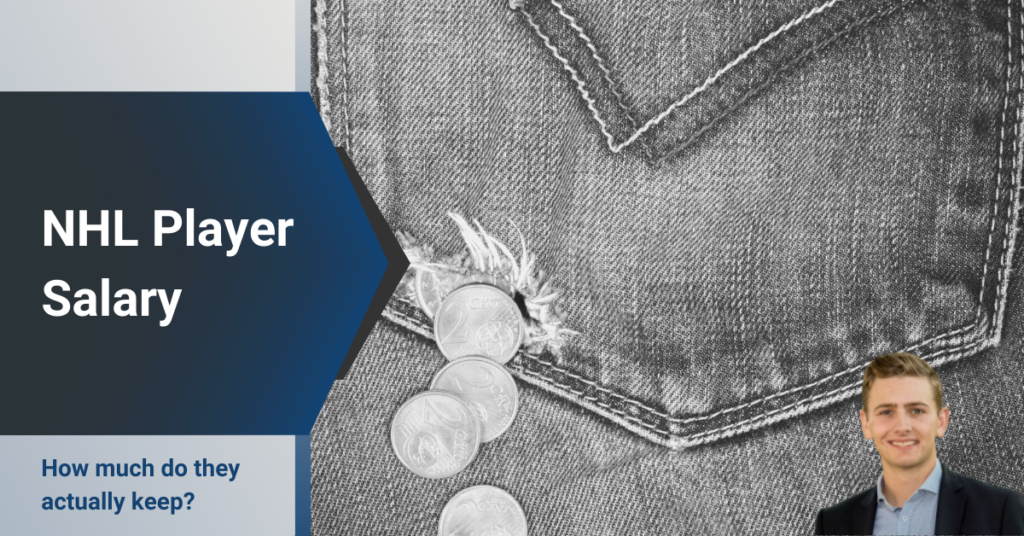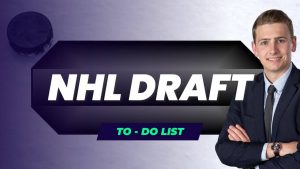[vc_row][vc_column][vc_column_text]
How much of their salary do NHL players keep?
In my article – how do pro athletes go broke – I highlighted that a leading cause of some high-income earning athletes experiencing financial trouble occurs because they don’t have a firm understanding of how much money they actually make. Just because TSN reports that an NHL player has a salary cap hit of $3 million, doesn’t mean that player will have $3 million to spend. So how much can a player expect to take home from their stated salary?
Let’s assume a player has a contract with the Winnipeg Jets, resides in Manitoba for tax purposes, and was to be paid $3 million for the 2018-19 season.
Escrow
In the 2018-19 season escrow withholding was 12.9%, with 3.25% returned to players. The official escrow loss for the players that season was 9.65%. Our Winnipeg player will hand $300,000 to the NHL.
Taxes
After subtracting escrow, the player will earn approximately $2.7 million. At this level of income, a resident of Manitoba would have an average tax rate of approximately 50%. So, we can take $1.35 million and hand it over to the CRA. Keep in mind that where you are playing (whether in the U.S. or Canada) can drastically affect your tax liability.
Agent Fees
Most players have agents, especially early in their career, as they are an extremely valuable asset for helping them get good contracts and protecting their best interests. However, it is important to remember that the valuable service they provide comes at a cost. Assuming our player is paying his agent 3% of pre-tax earnings, minus escrow, his agent fees will be approximately $80,000.
NHLPA Union Dues
Players pay $30 per day during the season to the NHLPA union. There were 252 days in the 2018-19 season, so $7,500 goes to the NHLPA.
Summary
Adding up the escrow, taxes, agent fees, and NHLPA union dues, our Winnipeg Jets players will not see approximately $1,737,500 of his contract, leaving him with only 42% of the face value of his deal!
This is where issues can potentially arise if you’re not prepared. In our example above, the player has yet to spend a dollar of what he’s earned on himself, but he only has 42% of his contract remaining. When we factor in the various lifestyle expenses – home, cars, cottages, jewelry, suits, and accessories, it becomes easier to understand how important it is to organize your spending, saving, and investing from the beginning of your career.
How Can You Avoid Trouble?
Keep in mind, this is an oversimplified illustration and many of the expenses involved can vary drastically for each player. However, a rule of thumb: if you’re playing in the NHL my advice is to assume that you only are earning 40% of what your contract value states. Use this as your measuring stick when developing a financial plan, and you’ll be off to a great start.
Since hockey is your primary focus, give me a call or book a meeting and let’s discuss how I can help with the off-ice financial side of your career and you can worry about the on-ice product you’re providing to your team.
[/vc_column_text][/vc_column][/vc_row]







